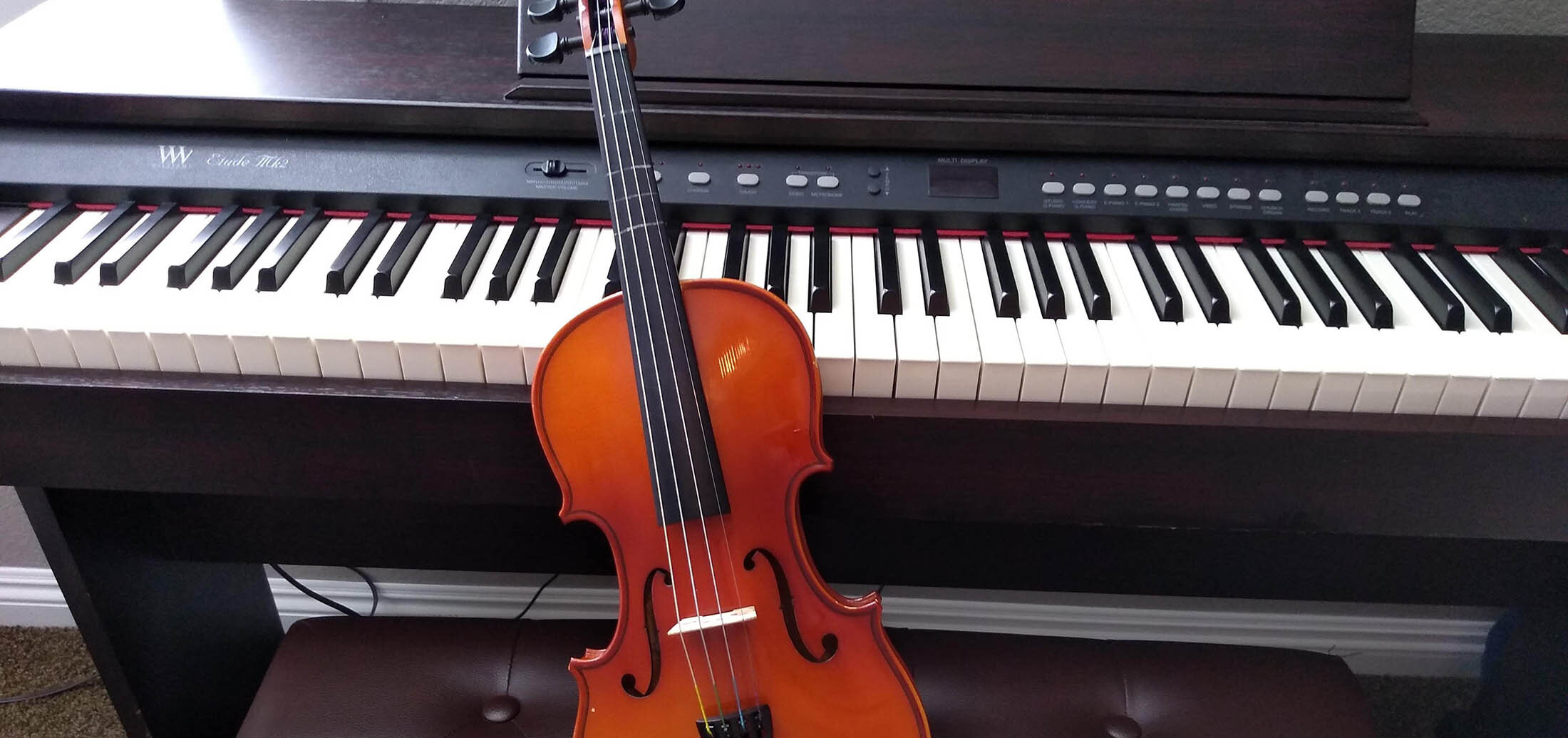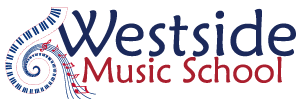
For Parents
What Parents Should Know About Westside Music School
Many music schools deliver music lessons in a one on one setting which can be intimidate younger children, as well as depriving them of the opportunity to learn from and be encouraged by other students and parents. At Westside Music School parents are encouraged to participate in music classes with their children. We believe this participation results in a more successful and rewarding experience. Below you’ll find tips that our music teachers discovered throughout our years of providing music instruction.
5 Ways to Get the Most Out of Music Lessons
Study with a qualified professional music teacher in a professional teaching environment
In a music school, teaching is not just a hobby or a side-line for the teacher, but a responsibility which is taken very seriously. Westside Music School music instructors are college graduates who must pass a rigorous exam, then successfully complete an extensive training process, and constantly update their skills.
Learning to play the piano or other instruments is not just a matter of having a qualified teacher, but also having an environment that is focused on music education. In a professional music school environment, students won’t be distracted by television, siblings, pets, ringing phones, or other possible interruptions.
Do I need to buy a piano to start lessons at Westside Music School?
For young children starting music lessons, we recommend an electronic keyboard – the keys are easier for little fingers to press, and the continuous tone enhances the pitch training. The variety of instrumental sounds, auto-accompaniments, and headphone capabilities make this instrument adaptable to any home environment. We recommend a keyboard with 61 full-sized keys.
Older beginners may choose to start with a keyboard, a digital piano (with weighted and touch sensitive keys), or a well-tuned acoustic piano. Students starting on a keyboard can eventually “graduate” to a digital or acoustic piano, as their skills develop.
How young is too young for music instruction?
Research has shown that very young children can develop an awareness of pitch, rhythm, and musical concepts. If left untapped, this natural musical ability may never be developed. Not only children, but people of all ages can benefit from musical training. It is extremely important that the curriculum and teaching techniques are appropriate to the age level of the students.
Adults can start any instrument at any age. Their success is based on how willing the adult is to commit to practicing. We have started students beginning in their 60’s, 70’s, and even 80’s. The Piano Street curriculum has been developed especially for adult and teenage beginners.
For children, starting at the right age is a key element to the success of their music lessons. Another important element is studying music curriculum that is appropriate to the child’s age and learning style. The Harmony Road Curriculum has been designed to take advantage of the way the student learns at each particular age, and combines structured learning with exploration, fun and games.
TODDLER TUNES has been developed for students between 1-1/2 – 3 years of age. The parents participate in the class activities which include: singing, rhythm, movement, and keyboard activities.
The MUSIC IN ME course was developed for 3 and 4 year olds, with parent participation. The peak age for brain and ear development is around three years old. Of course, traditional piano lessons are not appropriate for pre-school children, but they can be introduced to musical understanding through a variety of activities including rhythm, movement, ear training, keyboard activities, and an introduction to concepts of music reading. Learning about high notes and low notes is fun when the child has the opportunity to use manipulatives such as note magnets on a magnetic board. The concept will be meaningful if it is experienced physically first. Other concepts that will gradually be introduced include: line & space notes, going up and going down with scale songs, and rhythm patterns.
The HARMONY ROAD course was specially designed for kindergarten age (5 and 6 year olds), with parent participation in class and at home. The children learn through a combination of effective and enjoyable activities which include rhythm and movement, solfege and expressive singing, ear training, solo and ensemble keyboard playing, keyboard harmony and applied theory, creativity (improvising and composing), and music reading and writing.
The YOUNG MUSICIAN course was designed for first and second grade (ages 6-7) beginners, and features singing, ear training, rhythm, ear training, solo and ensemble keyboard playing, keyboard harmony and applied theory, music reading and writing, and creative activities.
For beginners ages 8-12, the KEYBOARD PREP course is ideal. Students learn through singing and ear training activities, rhythm, solo & ensemble keyboard playing, theory and keyboard harmony, ear training, music reading, writing, and composing.
Aren’t private music lessons better than group music lessons?
Most children genuinely want to play an instrument. However when they encounter natural challenges in learning to play, their enthusiasm can fade. A group lesson format helps children through this difficult start-up process by making the music class an enjoyable activity rather than a solitary pursuit. Through a diversity of musical activities the student experiences consecutive small successes cheered on by peers and the parents who attend the lessons.
Group lessons also provide the format to learn ensemble playing with its additional skills of reading orchestral-type scores, listening to the multiple parts while performing their individual part simultaneously, developing a strong sense of pulse and rhythm, and following a conductor.
Students learning in group lessons generally have greater confidence and less performance anxiety when performing in recitals, as they have multiple opportunities to perform for their class.
Make practicing easier…
As with any endeavor, progressing in music takes practice. One of the main problems with music lessons has been the drudgery of practicing and the ensuing fights between parents and students of practice every day. Here are some suggestions to encourage daily practice:
Set the same time every day to practice so that it becomes part of the student’s daily routine. Generally, the earlier in the day the practice session can occur, the less parental reminding is required.
For young beginners, we encourage the parent to participate in the home practice sessions as well as the weekly class sessions.
Rather than setting the timer for 30 minutes, or insisting on playing each assigned exercise 5 times, setting (daily, weekly, monthly) goals (with input from student, teacher, and parent) can be much more effective.
Rewards can motivate students of all ages. Some adults reward themselves with a cappuccino after a successful week of practicing. Parents can encourage children to practice by granting them occasional rewards for successful practicing. Stickers can be very motivational to young students. Praise tends to be the most coveted award – there is just no substitute for a pat on the back for a job well done.
Most important: HAVE FUN!!!
Music is something to be enjoyed for a lifetime. Try not to put unrealistic expectations on yourself or your child. Everyone learns at a different pace, and the varied class activities ensure that the students will absorb the concepts.
